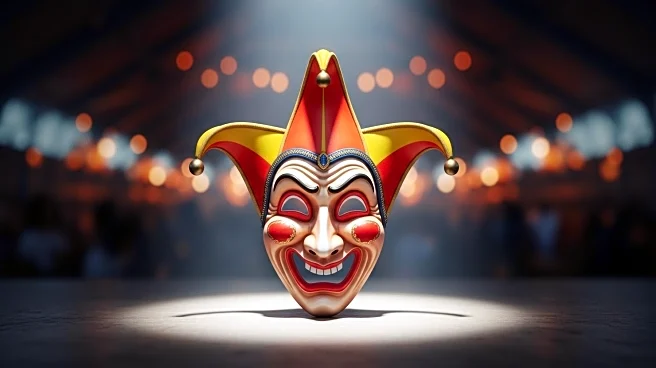What's Happening?
The Riyadh Comedy Festival, featuring prominent comedians such as Dave Chappelle, Bill Burr, and Jimmy Carr, has sparked controversy due to Saudi Arabia's human rights record. The festival, which runs from September 26 to October 9, coincides with the anniversary of journalist Jamal Khashoggi's murder, allegedly approved by Saudi Crown Prince Mohammed bin Salman. Despite criticism, the festival has attracted large audiences, including Saudi nationals and expatriates, who are witnessing performances with content considered socially liberal for the region. Comedians have faced backlash for participating, with some apologizing and donating their fees to human rights organizations. The festival is part of Saudi Arabia's Vision 2030 plan to diversify its economy and improve its global image.
Why It's Important?
The festival highlights the tension between cultural expression and human rights issues in Saudi Arabia. While the event aims to showcase Saudi Arabia as a modern entertainment hub, it raises ethical questions about performing in a country with a controversial human rights record. Comedians participating in the festival face criticism for potentially 'whitewashing' the regime's abuses. The event underscores the broader debate on the role of artists in advocating for human rights and the impact of economic incentives on moral decisions. The festival's timing, coinciding with Khashoggi's murder anniversary, further intensifies scrutiny on Saudi Arabia's efforts to reshape its international image.
What's Next?
The festival's conclusion may prompt further discussions on the role of entertainment in political contexts. Human rights organizations may continue to pressure artists to address Saudi Arabia's human rights issues publicly. The Saudi government might face increased scrutiny from international observers regarding its cultural initiatives. Comedians and entertainers may reassess their participation in events sponsored by regimes with controversial records. The festival's reception could influence future cultural events in Saudi Arabia and the willingness of international artists to engage with the country.
Beyond the Headlines
The festival reflects Saudi Arabia's broader strategy to transform its cultural landscape and attract global attention. It raises questions about the ethical responsibilities of artists and the influence of financial incentives on their choices. The event may contribute to a gradual shift in Saudi society's openness to diverse cultural expressions, despite existing legal and social restrictions. The festival's success could encourage further cultural investments, impacting Saudi Arabia's long-term economic diversification goals.









